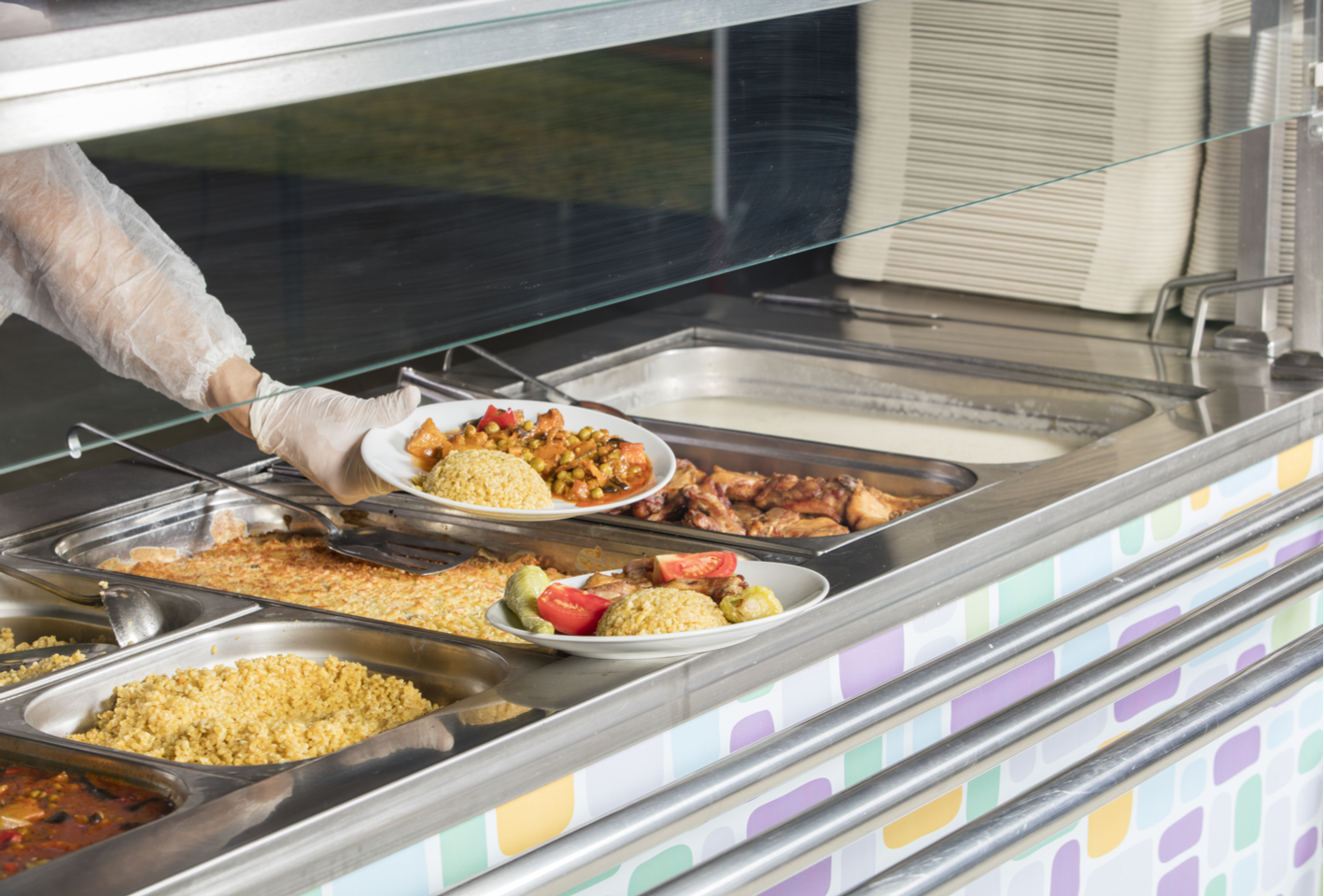We parents hear it all too often: “Gross! I won’t try that. It looks weird.” Defeated, we feel like cooking is a wasted effort, worrying that our children aren’t getting the variety, or the vitamins they need to thrive. Raising picky eaters is no picnic, and I should know. Things are better now because of Chef Maureen Voit, the manager of the cafeteria where my son (Max) attends 4th grade.
Max is in Maureen’s Culinary Club. He meets each week with a dozen of his peers and cooks after school. Here they are eating chocolate chip pancakes:
Other things they’ve made include Italian wedding soup, Blondies and pork cutlets. That may not sound life altering, but it is. Suddenly I have a kid who likes salad, fresh herbs and deftly mincing garlic.
It’s just like Maureen says: “we don’t know how much our kids are capable of until we let them try.” In the hundreds of students who matriculate through Maureen’s culinary club, she’s seen children ages 8 – 14 learn their way around a kitchen. These are a few highlights from our interview that took place while Maureen prepared school lunch. She put me to work, but I had a few sanitation guidelines to meet first.
Maureen: I’m honored to help with your article and so glad, too, that you’re volunteering. Can I ask you to wash your hands, put on a pair of gloves and tie your hair back first?
Me: (laughing) Of course! OK, now that I’m chopping, I want to ask you what you think the main benefit is, of teaching a child to cook–and what the best kinds of recipes for beginners are.
Maureen: I think after years of teaching Culinary Club, the most rewarding aspect is the impact parents see when the kids come home. Suddenly they ask their parents for salad–even offering to throw one together before the main course. They want to use salad dressings, because they learn here how good these taste over fresh cut veggies. As for great beginner’s recipes: LASAGNA. It’s fast, it’s easy and it can be served with lots of easy sides, like garlic bread and that aforementioned salad.
Me: How do you pick which recipes are taught in Culinary Club?
Maureen: I read LOTS of reviews. If recipes are rated EASY and also get high marks for taste, then I try to incorporate them into my program. I also distribute a survey to the students. Well, more of a menu ballot. I give the oldest students at the school, the 8th graders, four entrees and ask them to circle their favorites. (Winking) I make a lot of spaghetti and meatballs.
Me: Are you ever worried about kitchen safety, working with the kids?
Maureen: No, actually. I don’t let kids younger than 2nd grade near the stove, and while I do let kids 4th grade and up use kitchen knives, it’s only one child at a time. Actually, watching you cut that chicken now, I have some teacher’s notes for you.
Me: (Laughing again) Uh-oh. What am I doing wrong?
Maureen: Place both your hands on top of the knife and work in a see-saw motion, back and forth, on the chicken. It’s faster and safer that way. Always remember, your hands and fingers should be above the knife, never below it.
Me: Well, on behalf of my fingers remaining intact, I thank you. Let’s end this interview with some catch all advice for parents with picky eaters.
Maureen: I always tell them: Join the club! My children used to be picky. Then I told them that a little butter, sugar, salt, and fat isn’t bad. It’s OK to add these things in moderation to the foods you make. Kids crave junk food, and I think that’s because their taste buds have been overstimulated. You can’t eat Doritos, for instance, and expect something you’ve made from scratch to be as salty. But eventually, our tastes evolve. Kids are absolutely going to want to try the things they helped you cook. So invite them into the kitchen. Put them to work! You’ll be surprised what they can do–that’s my best piece of advice of all.
Jennifer Russon is the editor of the upcoming cookbook: The Family Dinner: It’s About Food and So Much More. Jorj.com has the details!


